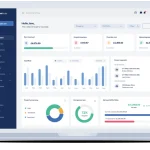Every poker table has a mix of player types — tight, aggressive, passive, and weak. While beating strong opponents requires deep strategy, your real profits often come from exploiting the weaker players who make consistent mistakes. The key is learning to recognize their tendencies and developing tactical moves that extract maximum value without unnecessary risk.
Identifying Weak Players
The first step in exploitation is identification. Weak players often display predictable patterns — calling too often, playing too many hands, or folding too easily under pressure. They may also reveal their hand strength through inconsistent bet sizing. Once you recognize these behaviors, your strategy becomes about isolating them and forcing them into uncomfortable decisions. On platforms like Winamax, where player tracking tools are available, spotting these tendencies early can lead to steady and predictable profits.
Controlling the Pot
When facing a weak opponent, controlling the pot is crucial. You don’t always need to play big pots; instead, aim to keep them in the hand long enough to extract value from their mistakes. Bet smaller with strong holdings to encourage calls, and apply pressure with bluffs only when the board favors your range. Weak players often chase draws or call with second-best hands, so consistent value betting outperforms fancy plays in the long run.
Adjusting Your Aggression
Exploiting weaker players means adjusting your level of aggression depending on how they react to pressure. Against passive opponents, aggressive continuation bets can pick up many uncontested pots. Against calling stations, reduce your bluffs and focus on building value when you have made hands. Understanding how each weak player responds allows you to dictate the rhythm of the game and avoid giving away unnecessary chips.
Position and Isolation
Position amplifies your advantage. Playing hands in position against weaker players allows you to control pot size, gather more information, and punish mistakes more effectively. Isolation raises are particularly powerful — by targeting a single weak player, you minimize interference and increase your chance of exploiting their errors directly. Over time, this strategy builds consistent profit through repetition rather than high-risk gambles.
Balancing Exploitation and Discipline
While it’s tempting to constantly attack weaker players, discipline remains essential. Over-aggression can backfire if the weak opponent suddenly connects with the board. Always maintain a clear plan for each hand and avoid emotional play. On competitive sites like Spartan Poker, skilled grinders often exploit overconfident players who push too far when chasing easy money. Keeping your emotions and strategy in sync ensures that your exploitation remains profitable, not reckless.
Final Thoughts
Exploiting weak players is not about arrogance — it’s about efficiency. Every mistake your opponent makes is an opportunity to increase your edge. By identifying their habits, controlling the pot, using position wisely, and adjusting aggression, you can extract steady profits from players who fail to adapt. Mastering this balance between pressure and patience turns poker from a guessing game into a calculated pursuit of long-term success.










